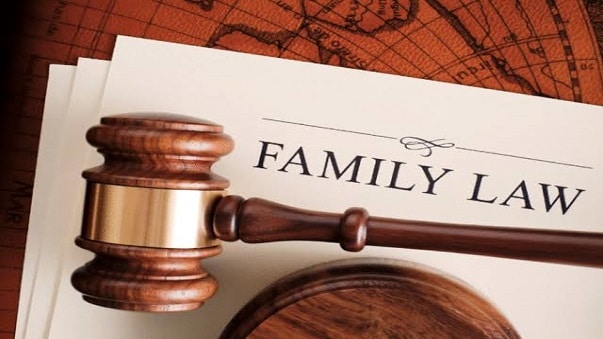As per the law it was held by the Apex Court to refrain from unnecessary litigation in the court there should be Medication and Conciliation between parties in regards to the compoundable offence and the civil disputes.
It is often noted and seen that there are various unwanted and unnecessary litigation in regards to the ancestral property and it takes time and money of parties and the Valuable time of Hon’ble Court gets wasted whereas the issue among the parties seems to be petty issue and same can be resolved if proper conciliation and mediation are provided. But there are various situations when one of family member does not trust another member of his or her family or their intention as are they are often in doubt. This person of family may not be trustworthy, man of word and he or she may step back from their word. So such a settlement can be reduced into writing in regard to the property and this settlement is called Family Settlement.
The Family settlement can help the family members to secure their right, portion and status in regard to the property and the family settlement can also be binding upon the people execution or signing the same. But it has to be proper and as per law because in case any discrepancies and lacuna in the said family settlement, it may lead to a challenge to the same and may cause unnecessary and avoidable litigations.
Family settlement law refers to a type of agreement that is made between members of a family to resolve disputes or settle matters related to family matters such as property, inheritance, or succession.
In India, family settlements are generally entered into voluntarily by the parties involved and are not enforceable by the courts unless they are made in writing, signed by the parties involved, and registered under the Indian Registration Act, 1908.
A family settlement agreement may cover a wide range of issues, including the distribution of property and assets, the payment of debts, and the resolution of disputes related to inheritance and succession. The agreement may also provide for the terms of support or maintenance for family members, and may address other matters of importance to the parties involved.
It is important to note that family settlements are not legally binding unless they are registered, and that they cannot be used to alter the provisions of a valid will or testamentary disposition.
If a family settlement is breached, the aggrieved party may seek to enforce the terms of the agreement through the courts. In such cases, the court may order specific performance of the terms of the agreement or may award damages to the aggrieved party.
It is advisable to seek the assistance of a qualified legal professional when entering into a family settlement agreement, in order to ensure that the agreement is properly executed and meets the requirements of the law.
A family settlement advocate is a legal professional who specializes in helping families resolve disputes and settle matters related to family matters such as property, inheritance, or succession.
When choosing a family settlement advocate, it is important to consider the following:
- Experience: Look for an advocate who has extensive experience in handling family settlement cases and is familiar with the relevant laws and procedures.
- Reputation: Choose an advocate who has a good reputation in the legal community and is known for his/her expertise in the field of family settlement law.
- Communication Skills: Look for an advocate who is an effective communicator and can explain complex legal concepts in simple terms.
- Availability: Ensure that the advocate you choose is readily available to attend court hearings and provide timely updates on the progress of your case.
- Budget: Consider your budget when choosing an advocate and look for one who is willing to work within your budget constraints.
It is advisable to get recommendations from trusted friends, family members, or colleagues, or to seek the assistance of a legal referral service. You may also wish to meet with several advocates before making a decision, in order to find one who you feel comfortable working with and who you believe will represent your interests effectively.
To avoid the same, you may contact us. We at Century Law Firm draft family settlements very carefully keeping in mind all the needs of our clients.
Frequently Asked Questions (FAQs) regarding Family Disputes and Settlement
- What is a family settlement? A family settlement is a legally binding agreement between family members that divides property and resolves disputes over inheritance, among other issues.
- Can family disputes be resolved through mediation? Yes, family disputes can be resolved through mediation, which is a form of alternative dispute resolution (ADR). In fact, in many cases, mediation is a preferred method of resolving family disputes because it can be less stressful, less expensive, and less time-consuming than going to court.
- What kinds of disputes can arise in a family settlement? Disputes can arise over a wide range of issues in a family settlement, including property division, inheritance, guardianship of minors, and financial matters.
- What is the process of resolving a family dispute in court? If a family dispute cannot be resolved through mediation or other forms of ADR, it may be necessary to file a lawsuit in court. The process will depend on the specific circumstances of the case, but generally involves filing a complaint or petition, followed by discovery, motions, and a trial.
- What are some common types of family law cases? Common types of family law cases include divorce, child custody and support, adoption, paternity, and domestic violence.
- Do I need a lawyer for a family law case? It is generally advisable to hire a lawyer for a family law case, particularly if the case involves complex legal issues or disputes that cannot be resolved through mediation or other forms of ADR. An experienced family law attorney can provide valuable guidance and representation throughout the process.
- What should I look for in a family law attorney? When selecting a family law attorney, look for someone with experience in the specific type of case you are facing, as well as a strong track record of success. It is also important to choose someone who is responsive, communicative, and compassionate, and who will work to protect your best interests throughout the process.
- How can I find the best lawyer for my family law case? There are a number of resources you can use to find a reputable family law attorney, including referrals from friends and family, online directories, and state bar associations. It is also a good idea to schedule consultations with several attorneys to get a sense of their experience and approach to handling cases.
- How long does it take to resolve a family law case? The length of time it takes to resolve a family law case will depend on the specific circumstances of the case, including the complexity of the legal issues involved, the level of conflict between the parties, and whether the case can be resolved through mediation or other forms of ADR. Some cases can be resolved relatively quickly, while others may take months or even years to fully resolve.
- What can I do to prepare for a family law case? To prepare for a family law case, it is important to gather all relevant documentation and evidence, such as financial records, communication logs, and any relevant court orders or agreements. It is also important to work closely with your attorney to develop a strong legal strategy and prepare for any hearings or trials that may be necessary.
- Can family disputes be resolved without going to court? Yes, in many cases, family disputes can be resolved without going to court through mediation, collaborative law, or other forms of ADR. These methods can be less stressful, less expensive, and less time-consuming than going to court, and can help to preserve important family relationships.
- What is collaborative law? Collaborative law is a form of ADR that involves both parties working together with their attorneys to resolve disputes outside of court. This method can be effective for resolving family law disputes, and can help to minimize conflict and promote cooperation between the parties.



